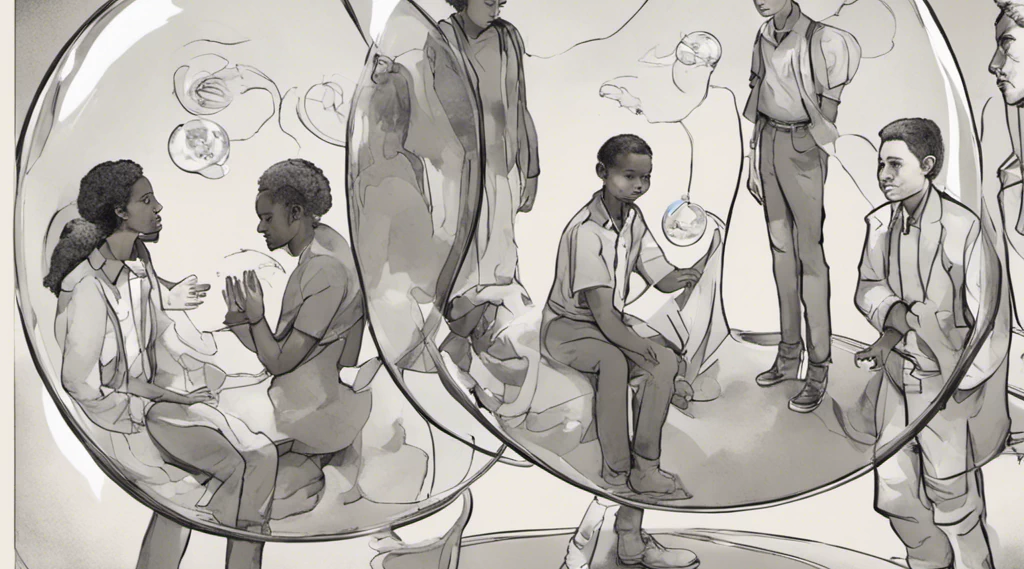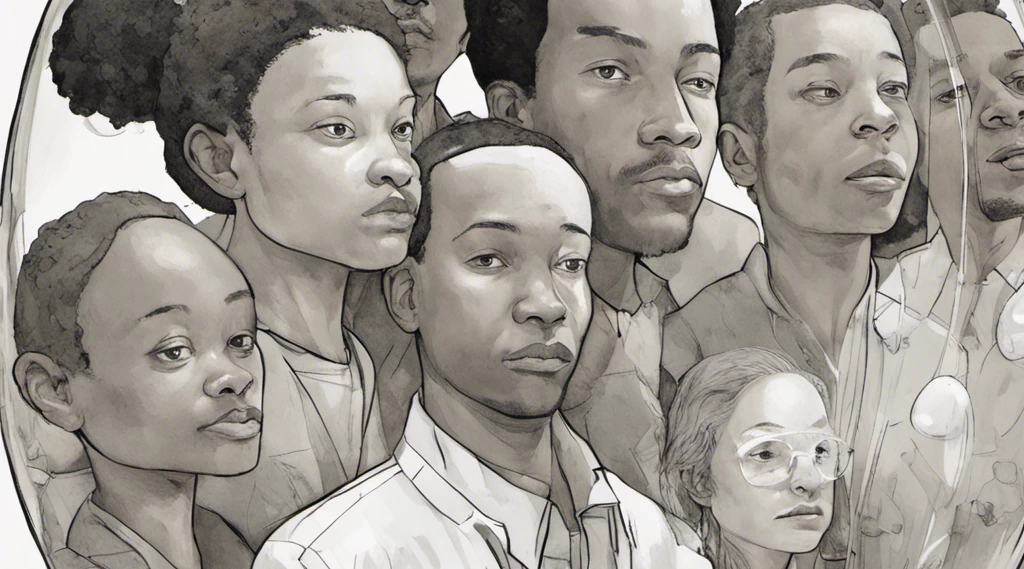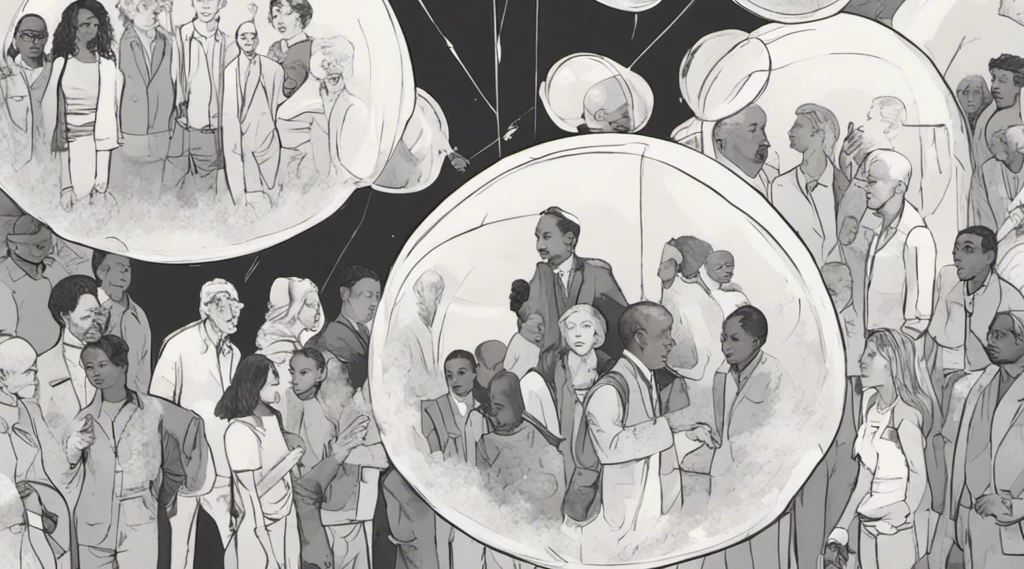White Fragility: Exploring the Controversial Concepts
"White Fragility" by Robin DiAngelo explores the concept of white fragility as a defensive response that upholds racial inequality and prevents meaningful conversations about racism.
Chapter 1 What’s the Book White Fragility about
"White Fragility: Why It's So Hard for White People to Talk About Racism" is a book written by Robin DiAngelo, a sociologist and diversity trainer. The book explores the concept of "white fragility," which refers to the defensive reactions and discomfort experienced by many white individuals when confronted with issues of race and racism. DiAngelo argues that this defensiveness often inhibits meaningful conversations about racism and hinders progress in addressing systemic racial inequalities.
The book delves into various aspects of white fragility, such as its origins, manifestations, and impact on racial discussions. DiAngelo examines how societal conditioning has shaped white people's perceptions, biases, and avoidance of engaging with racial issues. She emphasizes that acknowledging one's own privilege and examining unconscious biases are crucial steps towards understanding and combating racism.
DiAngelo also explores common patterns observed when discussing race, including denial, deflection, claims of colorblindness, and attempts to control or silence conversations. Through exploring these patterns, she encourages readers to reflect on their own responses and challenge themselves to engage in more productive dialogues around race, even if they may feel uncomfortable at times.
By shedding light on white fragility, the book seeks to equip individuals with tools to navigate these difficult conversations more effectively and promote racial justice. It aims to encourage self-reflection, awareness, and proactive engagement in dismantling systemic racism.
Chapter 2 Why is White Fragility Controversial
"White Fragility" is a concept introduced by Robin DiAngelo in her book of the same name. The term refers to the defensiveness and discomfort that some white individuals may experience when their racial privilege or racial biases are challenged. While the concept has gained popularity, it has also generated controversy for several reasons:
- Perceived generalization: Critics argue that the concept of white fragility makes sweeping generalizations about all white people, assuming that they will react defensively when confronted with issues of race. This generalization can make some individuals feel unfairly targeted or judged solely based on their race.
- Criticism of the author's intentions: Some critics argue that DiAngelo's intention is not to genuinely foster dialogue and understanding but to shame white individuals. They believe that her approach is overly confrontational and does not promote productive conversations about race.
- Validity of the concept: There are debates about whether white fragility is a valid concept or if it diminishes personal responsibility. Critics contend that focusing on white fragility deflects from addressing the broader systemic issues of racism and inequality.
- Perception of over-sensitivity: Opponents suggest that labeling white individuals as "fragile" may be dismissive and imply that they are overly sensitive or unable to engage in discussions about race without becoming defensive.
- Lack of alternative perspectives: Critics argue that the discourse around white fragility often lacks diverse viewpoints. They claim that this narrow focus on white fragility may hinder progress towards building a more inclusive society by not adequately acknowledging the experiences and perspectives of people from different racial backgrounds.
It is important to note that the controversy surrounding "White Fragility" stems from differing opinions and perspectives on how best to address issues of race and racism. Engaging in thoughtful and respectful dialogue can help facilitate greater understanding and bridge these divides.
Chapter 3 White Fragility Synopsis
In this article, we delve into the thought-provoking concepts presented in Robin DiAngelo's renowned book, "White Fragility." With a focus on understanding the complexities surrounding racial sensitivity, we explore the notion of white fragility and its impact on conversations about race. By unpacking DiAngelo's insightful theories, we aim to shed light on the challenges individuals face when discussing racism and develop a deeper understanding of the importance of engaging in open dialogue regarding these sensitive topics.
Chapter 4 Author of White Fragility
Robin DiAngelo is an American scholar, author, and consultant known for her work in the field of critical whiteness studies. She has a background in sociology and has been involved in diversity training and education for over two decades. DiAngelo is best known for her book "White Fragility: Why It's So Hard for White People to Talk About Racism," which was published in 2018 and gained significant attention.
In "White Fragility," DiAngelo explores how white people often respond defensively or with discomfort when confronted with discussions about race and racism. She argues that this fragility stems from socialization within a racist society, as well as the desire to protect one's self-image as a good person. DiAngelo emphasizes the importance of understanding and challenging these reactions in order to engage in productive conversations about racial inequality.
DiAngelo's work has been both praised and criticized. Supporters commend her for shedding light on the complex dynamics of white fragility and urging white individuals to examine their own biases and complicity in systemic racism. Critics, on the other hand, argue that her analysis oversimplifies issues of race and fails to offer practical solutions for addressing systemic inequalities.
Overall, Robin DiAngelo's work has contributed to ongoing conversations around race, racism, and the role of white individuals in combating systemic oppression. Whether one agrees or disagrees with her perspectives, her ideas have sparked important dialogue and reflection on these crucial topics.
Chapter 5 White Fragility Meaning & Theme
1. White Fragility Meaning
The term "white fragility" refers to the emotional discomfort and defensiveness that some white individuals may experience when confronted with conversations or discussions about racism, particularly their own racial privilege and complicity in systemic racism.
The book explores how white people often struggle to engage in meaningful discussions about race due to various factors, including fear of saying something wrong, feelings of guilt or shame, and a lack of understanding of systemic racism. DiAngelo argues that this defensive response serves as a means of self-preservation, protecting white individuals from acknowledging and addressing their own racial biases and the larger societal structures that perpetuate racism.
DiAngelo also highlights the importance of engaging in these conversations despite discomfort, as it is essential for dismantling racism and building a more equitable society. The book provides insights, analysis, and suggestions for overcoming white fragility, fostering productive dialogues, and working towards racial justice.
2. White Fragility Theme
The theme of "White Fragility: Why It's So Hard for White People to Talk About Racism" revolves around exploring the concept of white fragility and its impact on discussions about racism. The book, written by Robin DiAngelo, delves into the discomfort and defensiveness often experienced by white individuals when confronted with issues of race and racism.
One key theme is the examination of how white people's emotions, such as guilt, anger, or fear, can hinder open dialogue about racism. DiAngelo argues that these emotional reactions are rooted in a societal system that upholds white privilege and reinforces racial inequalities. By understanding white fragility, she suggests that it becomes possible to deconstruct and challenge these deeply ingrained responses, enabling more productive discussions about race.
Another theme explored in the book is the notion that racism is not solely an individual act or belief, but rather a complex system of power dynamics rooted in history and social structures. DiAngelo emphasizes that acknowledging this system is crucial for white people to comprehend the deep-rooted nature of racism and actively work towards dismantling it. The book invites readers to examine their own complicity in upholding racist practices, highlighting the importance of taking personal responsibility and engaging in self-reflection.
Furthermore, "White Fragility" explores how societal norms and narratives perpetuate racism and reinforce white superiority. DiAngelo discusses the ways in which society often avoids having difficult conversations about race, allowing white individuals to remain ignorant of their privilege. By bringing attention to these avoidance tactics and encouraging individuals to confront their discomfort, the book aims to foster a greater understanding of structural racism and promote meaningful change.
Overall, the central theme of "White Fragility: Why It's So Hard for White People to Talk About Racism" revolves around recognizing and challenging the defensive reactions that white individuals may experience when discussing racism. Through this exploration, the book aims to encourage white people to actively engage in critical conversations about race, confront their own biases and privileges, and become allies in the fight against racism.
Chapter 6 Browsing the Web for Resources on White Fragility
If you're interested in exploring the various formats and concise summaries of "White Fragility," there are some excellent platforms available to cater to your needs. Bookey, for instance, offers an extensive collection of books in different formats, accompanied by short summaries that provide a quick overview of the book's content. This option is perfect if you desire a comprehensive understanding of the material without investing excessive time. For those who prefer visual aids to grasp the essence of a book, we highly recommend browsing YouTube. With its vast array of videos, you can find valuable resources about "White Fragility" and similar titles like "White Fragility Summary (Animated) - Robin DiAngelo" that offer more comprehensive and informative insights into the content. Although we apologize for not being able to provide a PDF version of "White Fragility" here, our primary goal with this article is to introduce you to the book's reading value and present you with additional reading choices. Happy reading!
Chapter 7 Quotes about White Fragility
Here are a few quotes from the book "White Fragility: Why It's So Hard for White People to Talk About Racism" by Robin DiAngelo:
- "White people in North America live in a society that is deeply separate and unequal by race, and white people are the beneficiaries of that separation and inequality."
- "White fragility is a state in which even a minimum amount of racial stress becomes intolerable, triggering a range of defensive moves."
- "The most common characteristic of white fragility is defensiveness."
- "White fragility functions as a form of bullying; I withdraw, you follow my rules, or I punish you."
- "White fragility ensures that racism is never named or addressed in any real or meaningful way."
- "Racism is more than individual acts of prejudice; it is a system that shapes our lives."
- "Niceness does not challenge racism."
- "Color blindness is actually an evasion of responsibility."
- "White progressives cause the most daily damage to people of color."
- "Racial arrogance is the bedrock of white fragility."
Please note that these quotes are provided for informational purposes and do not necessarily reflect my own views or opinions.
Chapter 8 Books Like White Fragility
If you enjoyed reading "White Fragility" and want to explore similar books, here are some recommendations that delve into issues of race, privilege, and social justice:
- "Sapiens" by Yuval Noah Harari: It explores the history of our species, Homo sapiens, from our origins as hunter-gatherers to the present day. The book covers various aspects of human development, including the cognitive revolution, agricultural revolution, and scientific advancements.
- "Stamped from the Beginning: The Definitive History of Racist Ideas in America" by Ibram X. Kendi: In this comprehensive historical analysis, Kendi explores the development and impact of racist ideas throughout American history.
- "So You Want to Talk About Race" by Ijeoma Oluo: Offering practical guidance and insight, Oluo addresses various topics related to race and racism, including privilege, police brutality, microaggressions, and cultural appropriation.
- "How to Be an Antiracist" by Ibram X. Kendi: In this book, Kendi challenges readers to actively work against racism by examining their own beliefs and behaviors, advocating for policies that promote equality, and fostering antiracist attitudes.
- "Between the World and Me" by Ta-Nehisi Coates: Written as a letter to his son, Coates reflects on his own experiences as a Black man in America, weaving personal narrative with observations on systemic racism and violence.
- "The Fire Next Time" by James Baldwin: This collection of essays explores the African American experience and addresses issues of race, religion, and identity in America, offering thought-provoking insights and critiques.
- "Dreamland" by Sam Quinones: A captivating and deeply insightful non-fiction book that explores the opioid epidemic in the United States.
Remember, these recommendations provide a starting point, and each book offers a unique perspective on racial issues. Happy reading!





